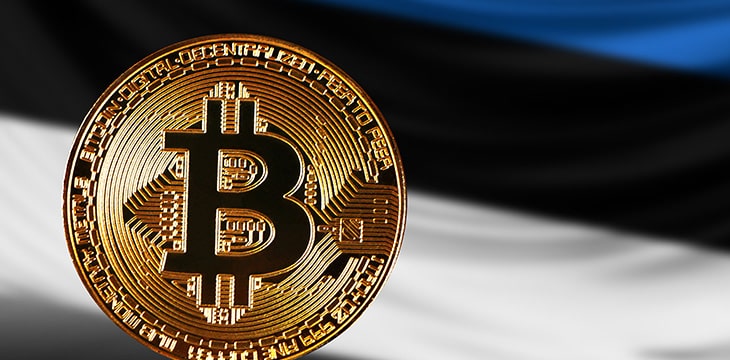|
Getting your Trinity Audio player ready...
|
Estonia is set to become the latest country to amend its financial regulations to clamp down harder on the digital currency industry. The European country has amended its anti-money laundering laws to extend oversight over the sector, including targeting decentralized finance (DeFi) platforms and tripling its license fees to over $11,000.
In September 2021, the Estonian Ministry of Finance published a draft bill intended to amend the country’s Money Laundering and Terrorist Financing Prevention Act (the AML Act). On December 23, the government approved this draft legislation, and this year, it will undergo three readings before it finally becomes law.
The draft law has given virtual asset service providers (VASPs) until March 18, 2022, to comply with the new stipulations.
The law starts with expanding the definition of VASPs to include sectors of the digital currency industry that were once left unchecked. Previously, the AML Act only looked at exchanges and wallets.
As London-based KYC and AML firm Sumsub notes, the law now includes initial coin offering (ICO) issuers, brokerage services, decentralized platforms and dApps, and third-party platforms which are involved in the sale, purchase, or storage of digital assets. In cases where there are no legal entities, individuals who developed the networks will be held accountable.
The new law has also hiked the licensing and operational fees for VASPs in Estonia. Previously, they had to part with €3,300 ($3,700) for an operational license. Once the draft law takes effect, it will triple the fee to €10,000 ($11,300).
Still, on operational costs, it has raised the share capital minimum tenfold for wallets, exchanges, and ICOs from $13,500 to $141,000. For companies that deal in digital currency transfer services, the fee has shot up to a staggering $395,000.
Furthermore, as of April 1, 2021, a Financial Intelligence Unit supervision fee amounting to 1% of share capital will apply.
In addition to the sky-high licensing fees, VASPs applying for a license must submit a raft of documents to the watchdog. These include a business plan, financial information such as assets and share capital size, documentation of risk appetite, information on their financial audit firm, and data on the number of shares and votes.
The watchdog will not issue a license to any VASP whose legal origin of the share capital is questionable, which only operates from Estonia but doesn’t serve Estonians, or whose IT systems don’t meet the set standards.
Those that manage to obtain the tough license must also stay on their toes or risk losing it. Grounds for license revocation include being inactive for longer than six months, choosing Estonia solely to evade tougher AML regulations in other jurisdictions, and publishing misleading information. Being found to have engaged in AML violation or terrorist financing will also lead to automatic license revocation.
The Estonian watchdog will be very strict on any VASP that’s deemed to have violated the rules. On top of the existing offenses that can lead to fines and license revocation, the new draft rule will add three new offenses. These are opening an anonymous account, breach of own funds requirement, and violating obligations such as failure to establish or control information related to the originator of a transaction.
Those who violate these stipulations will be in for a rough ride, with Sumsub pointing out, “These violations can lead to a fine of up to 300 fine units (one fine unit equals €4 [$4.52]) for a natural person and a fine of up to €400,000 [$452,004] for a legal person.”
Estonia had shaped up as one of the world’s biggest digital currency hubs, with several companies setting up shop in the Northern European country. Then came the Danske Bank fiasco in which the Danish bank was found to have laundered $230 billion in Europe’s biggest money-laundering scandal ever. The bulk of this money was laundered via Estonia, and since then, the country has been extra tough on financial institutions, including digital currency companies.
Watch: CoinGeek New York panel, Government & Public Sector Applications on Blockchain
https://www.youtube.com/watch?v=wGw6rBv7nlc&t=12716s

 03-02-2026
03-02-2026 




